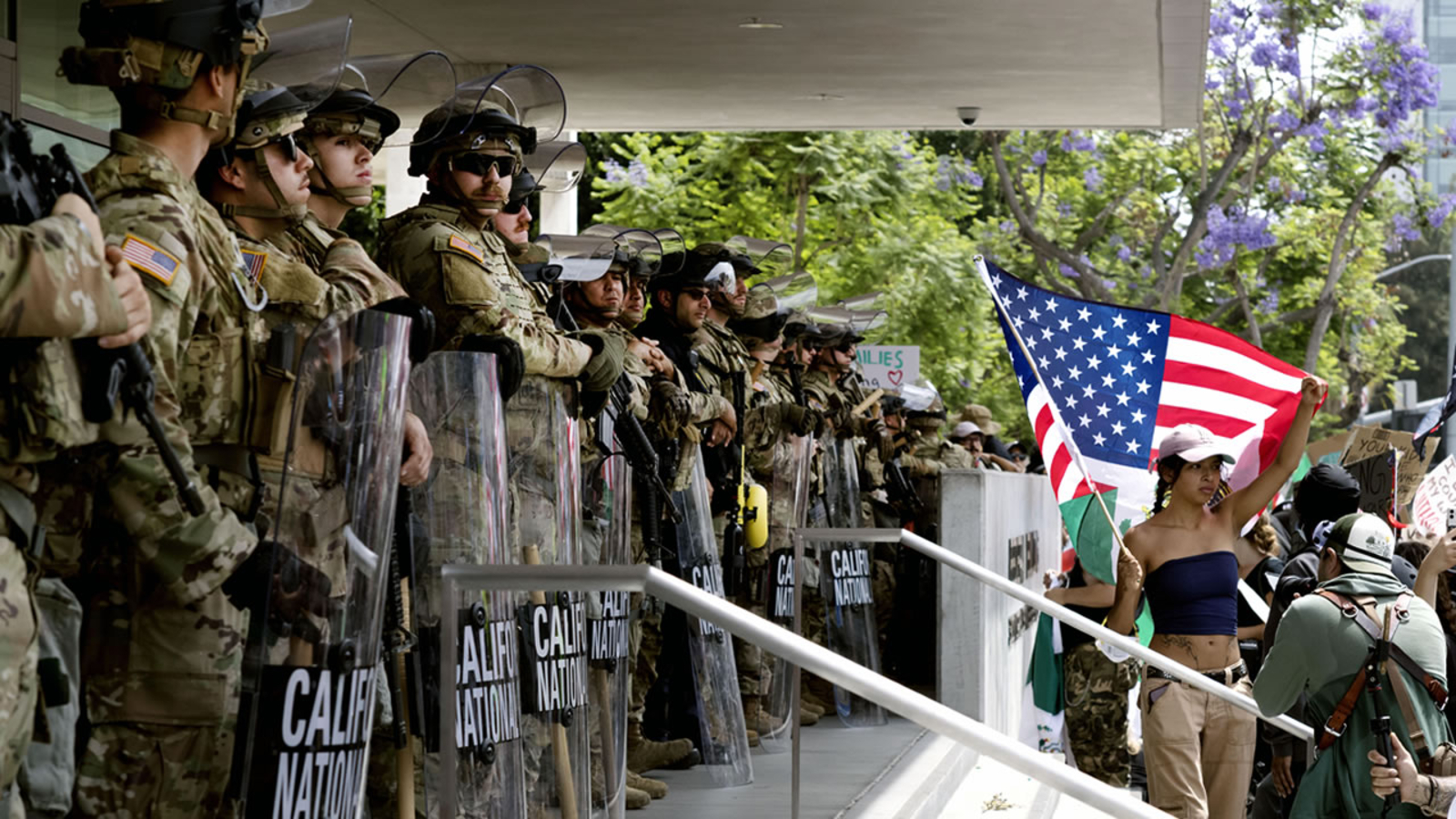As closing arguments began, the California DOJ gave historical context about the Posse Comitatus Act, which dates back to 1878. It prohibits the use of military to execute U.S. laws, without authorization of Congress or by the Constitution.
California noted the 8th Circuit has called PCA “the embodiment of a long tradition of suspicion and hostility of military force for domestic purposes.”
CA DOJ: “Occupation of a civilian city by nearly 5,000 troops for 60 days will have and has had a prescriptive effect on that population. That is exactly the kind of standing army the founding fathers feared. Each of the incidents is a PCA violation.”
CA DOJ goes back to the Trump administration’s key defense, that the military deployment was solely for protection of federal property and personnel. Photographs were again shown of troops in a blockade line and interacting with a protestor. “Defendants cannot wordsmith their way around the law. Calling it ‘security’ doesn’t make it any less illegal.”
The CA DOJ concluded closing arguments asking for a permanent injunction to “bring a halt to the unlawful military crusade across this state.”
Before US DOJ started closing arguments, Judge Breyer asked Eric Hamilton (US deputy asst AG) this: “Is there any limitation to use of the military in an operation which is being conducted by federal agents? For example, one, does there have to be a threat? Two, does there have to be some evaluation for threat in terms of consequences of the threat? Three, is there anything, I haven’t seen any evidence in this case, as to the adequacy or inadequacy of local law enforcement addressing that threat?”
Hamilton says there isn’t anything in Posse Comitatus Act that requires some pre-operation threat assessment. The “National Guard was federalized in early June because of violent protests in the LA area and we have seen at trial evidence of violence that persisted in July.”
Judge Breyer continued with many questions for Hamilton (US DOJ) in quite impassioned tone. “Unless military is the first line of defense…it’s usually local law enforcement that is the first line of defense. But there is no evidence in these situations…that they were unable or unwilling to enforce the law… Is that a correct analysis?”
Then Hamilton got into his closing arguments, also starting with the Posse Comitatus Act. He highlighted 9th Circuit cases that mention military being used as “backup security.” Quote from Kahn (9th Circuit. 1994): “The district court concluded that the Navy provided only logistical support and backup security…therefore did not violate the law.”
Now as to POTUS authority to federalize National Guard (see 10 USC 12406), Hamilton mentions the rebellion clause saying, “It’s a rebellion because (Trump) says it’s a rebellion.” Judge Breyer does not seem satisfied with that answer and continued Q&A.
Hamilton referred back to witness statements, including Monday testimony from Army Deputy Chief of Staff William Harrington, who said the Guard had no interactions with civilians in reference to a July 7 MacArthur Park operation which took “20 minutes.” Harrington testified that they did not engage in law enforcement activities.
Note: These were only closing arguments for the evidentiary portion of the trial. Judge Breyer said he’s expecting arguments on “legal issues” Wednesday.
